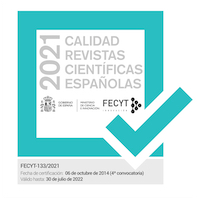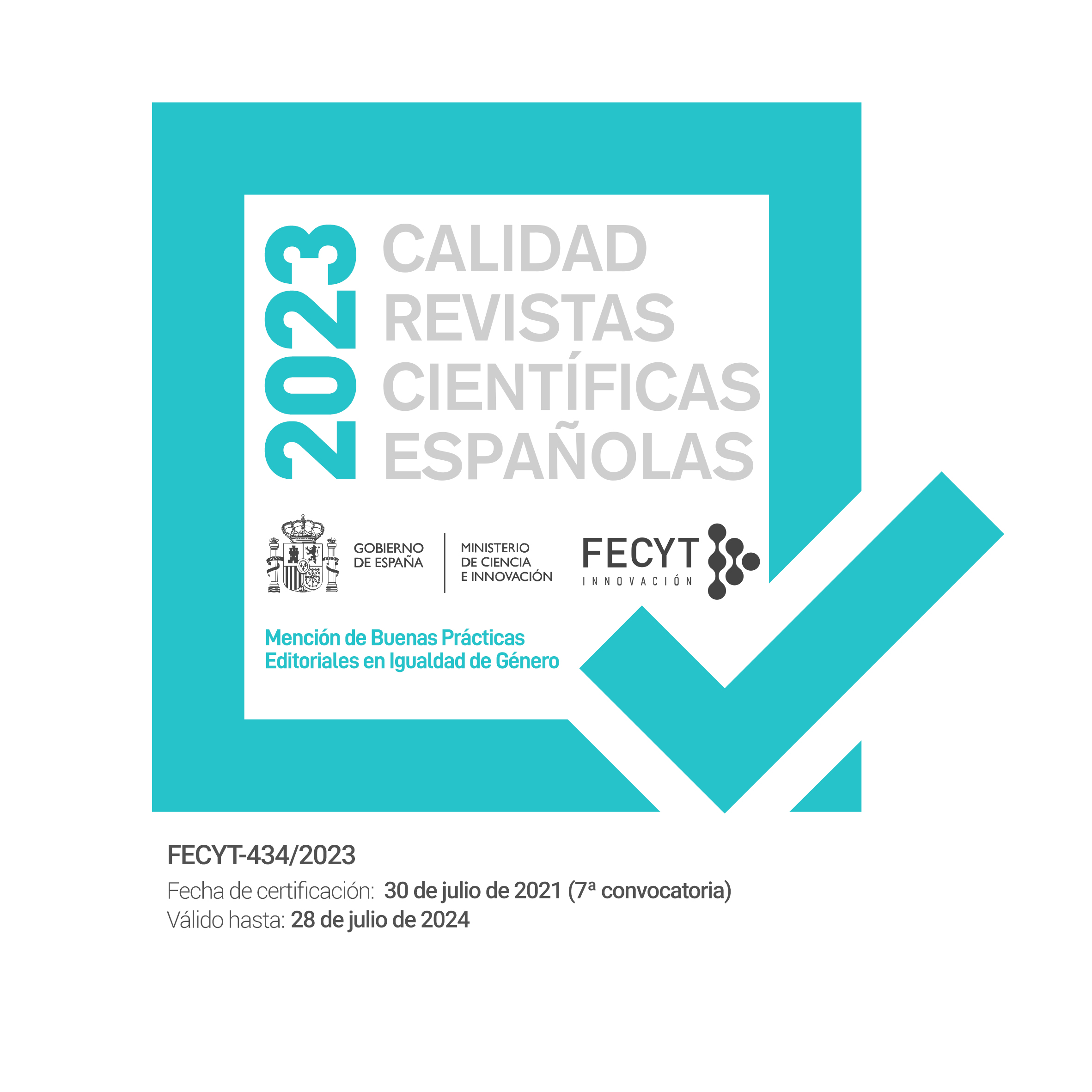Inocencio III, el IV Concilio de Letrán y el estatus jurídico del hereje en la glosa ordinaria al Decreto de Graciano y en la de Accursio al Código Justiniano.
Palabras clave:
Heretic, roman christian law, Innocent III, Vergentis, Ordinary Gloss,, Decree Gratian, Accursius, Gloss, Codex IustinianiResumen
An introductory chronological, conceptual and juridical foreword dealing with the problem of the heresies in the Roman-Christian law is needed as this law had a great influence upon both Canon and Roman medieval law. The medieval Canon law of the 11th century is expounded, as it is here that the problem of heresies reappears both before and after the Vergentis decree in order to see the amendments that this decree resulted in. The juristic education of its author Pope Innocent III and his relationship with Uguccione da Pisa, the most important and influential canonist not only of this century, is then outlined. The research about the
juridical status of the heretics in the Ordinary Gloss to the Decree of Gratian and in that of Accursio to Codex Iustiniani presents not only the related sentences and legal incapacities which concerned the heretics but also the relationship between Canon and Roman law in the Middle Ages.
Keywords: Heretic; roman christian law; Innocent III; Vergentis; Ordinary Gloss; Decree Gratian; Accursius; Gloss; Codex Iustiniani.
Citas
<p>Cortese, Ennio. <em>Il diritto nella storia medievale. </em><em>II Il Basso Medioevo</em>. Roma, 1995.</p>
<p>De Vergottini, Giovanni. <em>Studi sulla legislazione imperiale di Federico II in Italia: le leggi del 1220</em>. No. 11. A. Giuffrè, 1952.</p>
<p>Gaudemet, Jean. <em>Les sources du droit en Occident du II<sup>e</sup> au VII<sup>e</sup> siécle</em> s.l. ma. Paris, 1985.</p>
<p>Hageneder, Othmar. “Der Häresiebegriff bei den Juristen des 12. und 13. Jahrhunderts.” <em>The Concept of Heresy in the Middle Ages (11th-13th C).</em> Leuven, 1983.</p>
<p>Hageneder, Othmor. "III. Studien zur Dekretale „Vergentis"(Χ. V, 7, 10)." <em>Zeitschrift der Savigny-Stiftung für Rechtsgeschichte. </em><em>Kanonistische Abteilung</em> 49.1 (1963): 138-173.</p>
<p>Kantorowicz, Hermann. “Accursio e la sua biblioteca.” <em>Rivista di Storia del Diritto Italiano 2</em>.(1929): 35-62.</p>
<p>Kolmer, Lothar. <em>Ad capiendas vulpes: die Ketzerbekämpfung in Südfrankreich in der ersten Hälfte des 13. Jahrhunderts und die Ausbildung des Inquisitionsverfahrens</em>. Bonn, 1982.</p>
<p>Landau, Peter. <em>Die enstehung der canonischen infamiebegriffs von gratian bis zur glossa ordinaria</em>. Köln-Graz, 1966.</p>
<p>Le Bras, Gabriel. <em>Histoire du droit et des institutions de l'Église en Occident</em>. <em>L’Age classique 1140-1378</em>. Sources et Théorie du Droit. Paris, 1965.</p>
<p>Maccarrone, Michele, ed. <em>Chiesa e Stato nella dottrina di Papa Innocenzo III</em>. Fac. Theolog. Pontif. Athenaei Lateranensis, 1940.</p>
<p>Maceratini, Ruggero<em>. La glossa ordinaria al decreto di Graziano e la glossa di Accursio al codice di Giustiniano: una ricerca sullo status giuridico degli eretici</em>. Vol. 39. Università degli studi di Trento, 2003.</p>
<p>Maceratini, Ruggero<em>. Ricerche sullo status giuridico dell'eretico nel diritto romano-cristiano e nel diritto canonico classico: da Graziano ad Uguccione</em>. Padova, 1994.</p>
<p>Maisonneuve, Henri. "Le droit romain et la doctrine inquisitoriale<em>." Études de droit canonique dédiées à Gabriel Le Bras</em>. Paris 2 (1965).</p>
<p>Maisonneuve, Henri. <em>Études sur les origines de l’Inquistion (L’Eglise et l’État au Moyen Age VII Dir. LE BRAS, G.)</em>. Paris, 1960.</p>
<p>Moore, John C., and Pope Innocent III. "To Root up and to Plant." Leiden, Brill , 2003.</p>
<p>Pennington, Kenneth. "The legal education of Pope Innocent III." <em>Varioru</em>m. Aldershot, 1993.</p>
<p>Pennington, Kenneth. "The Making of a Decretal Collection: the genesis of Compilatio tertia." <em>Proceedings of the 5 th International Congres of Medieval Canon Law</em>. Città del Vaticano, 1980.</p>
<p>Pisanus, Huguccio. <em>Summa Decretorum. Monumenta Iuris Canonici.</em> Vol. 6. Città del Vaticano, 2006.</p>
<p>Ruffini, Francesco. <em>Relazioni tra Stato e Chiesa: lineamenti storici e sistematici a cura</em>. Margiotta Broglio, F. Ed. Bologna, 1974.</p>
<p>Ruffino, Onofrio. “Ricerche sulla condizione giuridica dell’eretico nel pensiero dei Glossatori.” <em>Rivista Storia del Diritto Italiano</em> 46. Milano-Verona, 1973.</p>
<p>Sayers, Jane E . <em>Innocenzo III, 1198-1216</em>. Roma, 1997.</p>
<p>Stickler, Alphonso Maria. <em>Historia Iuris Canonici- Institutiones Academicae- I Historia Fontium</em>. Augustae Taurinorum, 1950.</p>
<p>Tillmann, Helene. <em>Pope Innocent III</em>. Amsterdam, 1980.</p>
<p>Ullmann, Walter. “The significance of Innocent III’s decretal.” <em>Vergentis</em>, <em>Études de droit canonique dédiées à Gabriel Le Bras</em>. Paris (1965): 729-741.</p>
<p>Walther, Helmut G. “Ziele und Mittel päpstlicher Ketzerpolitik.” <em>Die Anfänge der Inquisition im Mittelalter Mit einem Aublick auf das 20. Jahrhundert und einem Beitrag über religiöse Intoleranz im nichtchristlichen Bereich</em>. Köln-Weimar-Wien, 1993.</p>
<p>Weimar, Peter. "Die legistische Literatur der Glossatorenzeit." <em>Handbuch der Quellen und Literatuur der neueren europäischen Privatrechtsgeschichte</em> 1. München, 1973.</p>
<p> </p>









